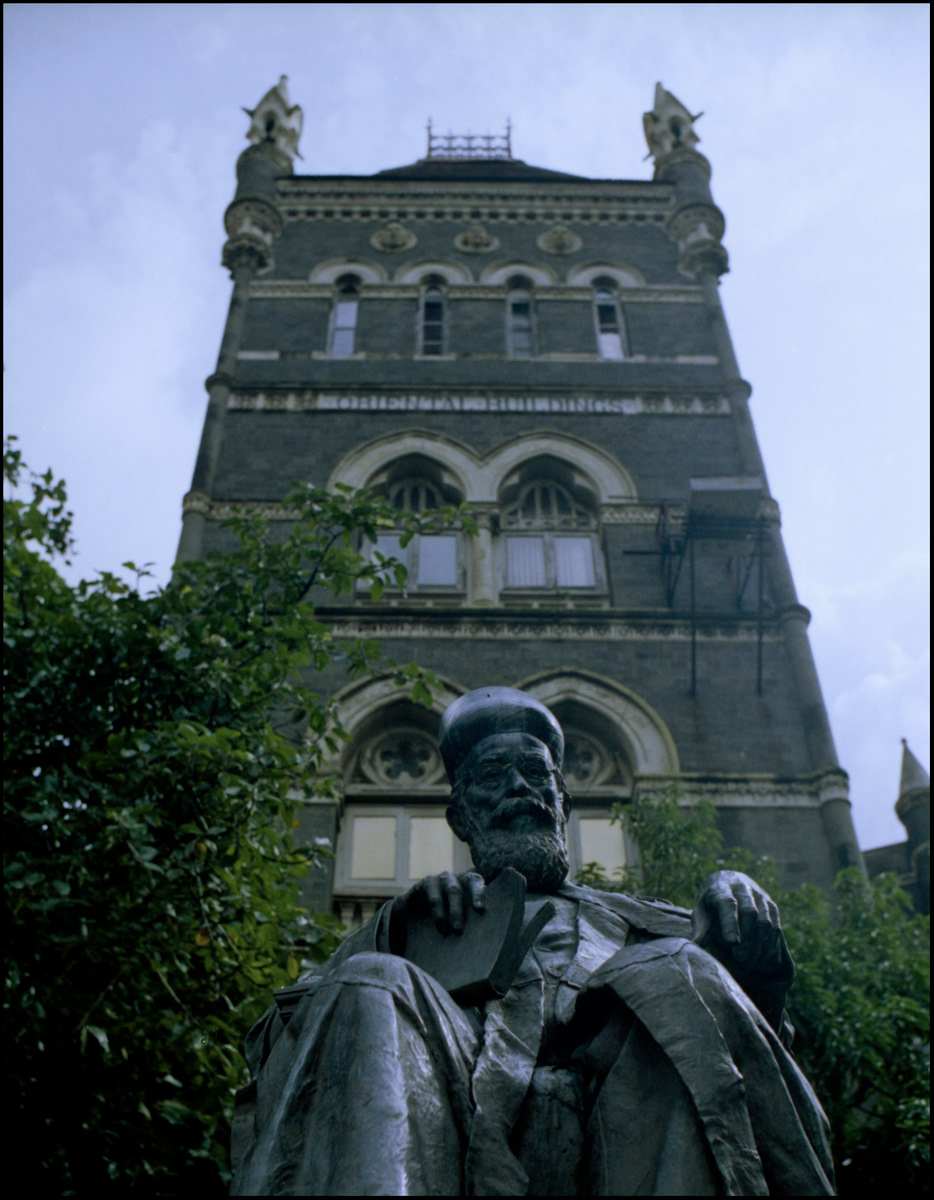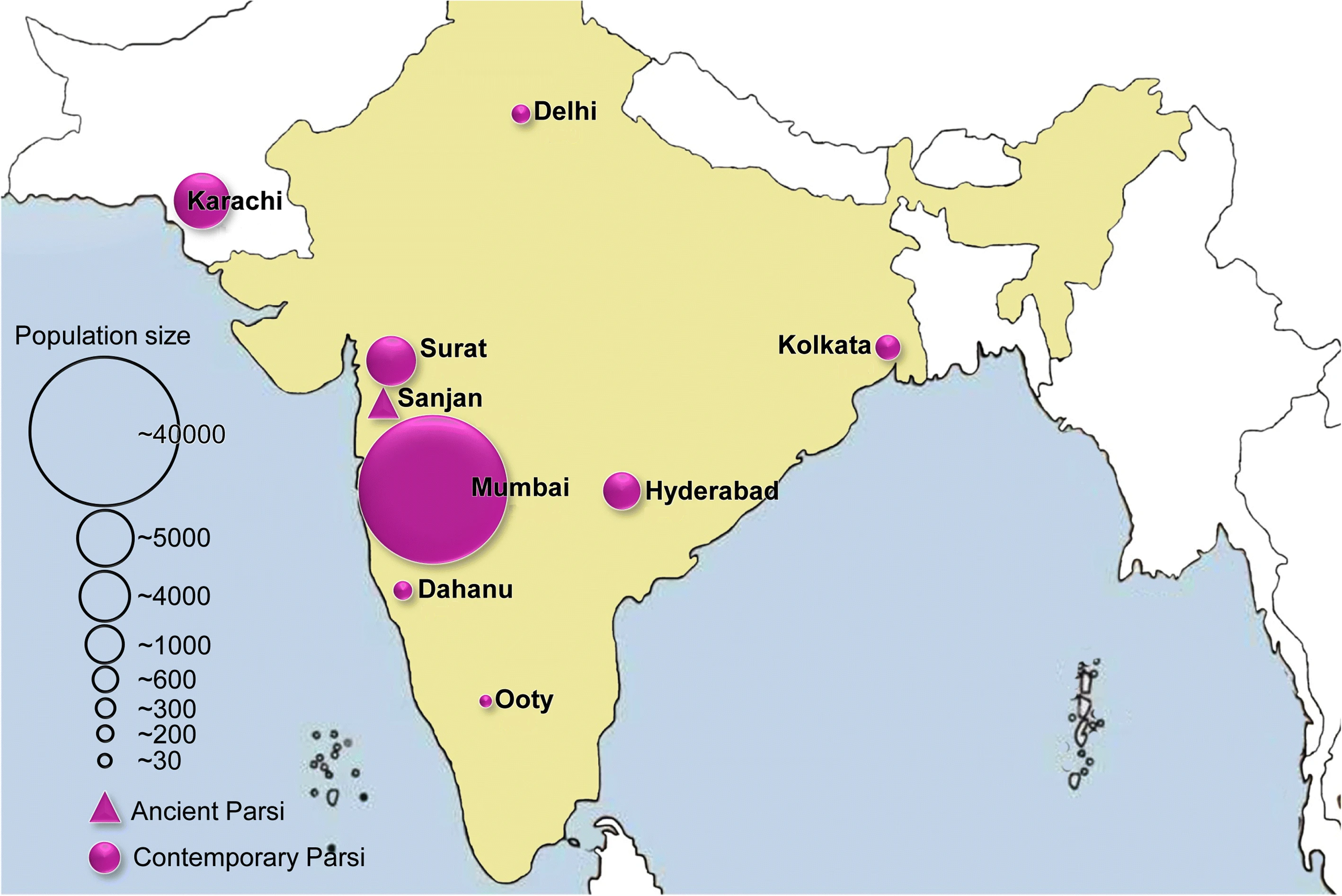|
Naoroji Furdunji
Naoroji Furdunji (1817–1885) was a Parsi reformer from Bombay. He was born at Bharuch and educated at Bombay, becoming a teacher. During the 1840s, he defended the Zoroastrianism of the Parsis, at that time under pressure from Christian missionary activity, in ''Fam-i-Farshid'' which he edited. He was a founder of the Student's Literary and Scientific Society in 1845, with Dadabhai Naoroji, Bhau Daji Laad, Jagannath Shankar Shet, Vishwanath Mandlik and Sorabji Shapurji Bengali. In 1851, with backing from K. N. Kama and in company with other like-minded Parsis, he founded the Rahnumai Mazdayasnan Sabha, becoming its president for the rest of his life. As secretary of the Parsi Law Association from 1855 to 1864 he worked for legal codification. When the Bombay Association was set up in 1852, Naoroji Furdunji took the major part in drafting its petition, made in 1853, to the British Parliament. He was one of the Association's secretaries, with Bhau Daji, whose investigative acti ... [...More Info...] [...Related Items...] OR: [Wikipedia] [Google] [Baidu] |
Parsi
Parsis () or Parsees are an ethnoreligious group of the Indian subcontinent adhering to Zoroastrianism. They are descended from Persians who migrated to Medieval India during and after the Arab conquest of Iran (part of the early Muslim conquests) in order to preserve their Zoroastrian identity. The Parsi people comprise the older of the Indian subcontinent's two Zoroastrian communities vis-à-vis the Iranis, whose ancestors migrated to British-ruled India from Qajar-era Iran. According to a 16th-century Parsi epic, ''Qissa-i Sanjan'', Zoroastrian Persians continued to migrate to the Indian subcontinent from Greater Iran in between the 8th and 10th centuries, and ultimately settled in present-day Gujarat after being granted refuge by a local Hindu king. Prior to the 7th-century fall of the Sassanid Empire to the Rashidun Caliphate, the Iranian mainland (historically known as 'Persia') had a Zoroastrian majority, and Zoroastrianism had served as the Iranian state religion ... [...More Info...] [...Related Items...] OR: [Wikipedia] [Google] [Baidu] |
Bombay
Mumbai (, ; also known as Bombay — the official name until 1995) is the capital city of the Indian state of Maharashtra and the ''de facto'' financial centre of India. According to the United Nations, as of 2018, Mumbai is the second-most populous city in India after Delhi and the eighth-most populous city in the world with a population of roughly 20 million (2 crore). As per the Indian government population census of 2011, Mumbai was the most populous city in India with an estimated city proper population of 12.5 million (1.25 crore) living under the Brihanmumbai Municipal Corporation. Mumbai is the centre of the Mumbai Metropolitan Region, the sixth most populous metropolitan area in the world with a population of over 23 million (2.3 crore). Mumbai lies on the Konkan coast on the west coast of India and has a deep natural harbour. In 2008, Mumbai was named an alpha world city. It has the highest number of millionaires and billionaires among all cities i ... [...More Info...] [...Related Items...] OR: [Wikipedia] [Google] [Baidu] |
Bharuch
Bharuch (), formerly known as Broach, is a city at the mouth of the river Narmada in Gujarat in western India. Bharuch is the administrative headquarters of Bharuch District. The city of Bharuch and surroundings have been settled since times of antiquity. It was a ship building centre and sea port in the pre-compass coastal trading routes to points West, perhaps as far back as the days of the pharaohs. The route made use of the regular and predictable monsoon winds or galleys. Many goods from the Far East (the famed Spice and Silk trade) were shipped there during the annual monsoon winds, making it a terminus for several key land-sea trade routes. Bharuch was known to the Greeks, the various Persian Empires, in the Roman Republic and Empire, and in other Western centres of civilisation through the end of the European Middle Ages.Periplus of the Erythraean Sea [...More Info...] [...Related Items...] OR: [Wikipedia] [Google] [Baidu] |
Zoroastrianism
Zoroastrianism is an Iranian religions, Iranian religion and one of the world's History of religion, oldest organized faiths, based on the teachings of the Iranian peoples, Iranian-speaking prophet Zoroaster. It has a Dualism in cosmology, dualistic cosmology of good and evil within the framework of a Monotheism, monotheistic ontology and an eschatology which predicts the ultimate conquest of evil by good. Zoroastrianism exalts an uncreated and benevolent deity of wisdom known as ''Ahura Mazda'' () as its supreme being. Historically, the unique features of Zoroastrianism, such as its monotheism, messianism, belief in Free will in theology, free will and Judgement (afterlife), judgement after death, conception of heaven, hell, Angel, angels, and Demon, demons, among other concepts, may have influenced other religious and philosophical systems, including the Abrahamic religions and Gnosticism, Southern, Eastern and Northern Buddhism, Northern Buddhism, and Ancient Greek philosoph ... [...More Info...] [...Related Items...] OR: [Wikipedia] [Google] [Baidu] |
Dadabhai Naoroji
Dadabhai Naoroji (4 September 1825 – 30 June 1917) also known as the "Grand Old Man of India" and "Unofficial Ambassador of India", was an Indian political leader, merchant, scholar and writer who served as 2nd, 9th, and 22nd President of the Indian National Congress from 1886 to 1887, 1893 to 1894 and 1906 to 1907. He was a Liberal Party Member of Parliament in the British House of Commons, representing Finsbury Central between 1892 and 1895. He was the second person of Asian descent to be a British MP, the first being Anglo-Indian MP David Ochterlony Dyce Sombre, who was disenfranchised for corruption after nine months in office. His book ''Poverty and Un-British Rule in India'' brought attention to his theory of the Indian "wealth drain" into Britain. He was also a member of the Second International along with Kautsky and Plekhanov. In 2014, Deputy Prime Minister Nick Clegg inaugurated the Dadabhai Naoroji Awards for services to UK-India relations. India Post depicted ... [...More Info...] [...Related Items...] OR: [Wikipedia] [Google] [Baidu] |
Bhau Daji
Ramachandra Vitthal Lad (1824–1874), commonly known as Bhau Daji Lad was an Indian physician, Sanskrit scholar, and an antiquarian. Early life and education Lad was born in 1822 in a Gaud Saraswat Brahmin family in Mandrem (Manjari) Goa. An Englishman, noticing his acumen at chess convinced his father to give the boy an English education. Bhau moved to Mumbai and completed his schooling at the Elphinstone Institution. Around this time he won a prize for writing an essay on infanticide, and was appointed a teacher in the Elphinstone Institution. He then studied medicine at the Grant Medical College. He belonged to the class of 1850, the first graduating batch of the college. Medical career In 1851, he started practising medicine in Mumbai and became very successful. He studied the Sanskrit literature of medicine. He also tested the value of drugs to which the ancient Hindus had ascribed marvellous powers, among other pathological subjects of historical interest investigatin ... [...More Info...] [...Related Items...] OR: [Wikipedia] [Google] [Baidu] |
Sorabji Shapurji Bengali
Sorabji is a surname. It may refer to: *Alice Maude Sorabji Pennell (1874–1951), Indian physician and writer *Cornelia Sorabji (1866–1954), first woman barrister from India, social reformer and writer *Francina Sorabji (1833–1910), Indian educator and Christian missionary, mother of Cornelia, Susie, and Alice Maude Sorabji *Kaikhosru Shapurji Sorabji (1892–1988), English composer, music critic, pianist and writer *Richard Sorabji (born 1934), British historian of philosophy *Susie Sorabji (1868–1931), Indian educator and Christian missionary See also: *Sorabji Colah (1902–1950), Indian cricketer *Sorabji Pochkhanawala (1881–1937), Indian banker and one of the founders of the Central Bank of India *Soli Sorabjee Soli Jehangir Sorabjee, AM (9 March 193030 April 2021) was an Indian jurist who served as Attorney-General for India from 1989 to 1990, and again from 1998 to 2004. In 2002, he received the Padma Vibhushan for his defence of the freedom of expr ... (1930–2 ... [...More Info...] [...Related Items...] OR: [Wikipedia] [Google] [Baidu] |
Alexander Burnes
Captain Sir Alexander Burnes (16 May 1805 – 2 November 1841) was a Scottish explorer, military officer, and diplomat associated with the Great Game. He was nicknamed Bokhara Burnes for his role in establishing contact with and exploring Bukhara. His memoir, ''Travels into Bokhara'', was a bestseller when it was first published in 1835. Early life Burnes was born on 16 May 1805 in Montrose, Scotland, as the fourth son of James Burnes (1780–1852) the local provost, who was first cousin to the poet Robert Burns. His brother was the doctor and surgeon James Burnes. At the age of sixteen, Alexander joined the army of the East India Company and while serving in India, he learned Urdu and Persian, and obtained an appointment as interpreter at Surat in 1822. He was transferred to Kutch in 1826 where he was based at Bhuj for three years. As assistant to the political agent, he took an interest in the history and geography of north-western India and the adjacent countri ... [...More Info...] [...Related Items...] OR: [Wikipedia] [Google] [Baidu] |
1817 Births
Events January–March * January 1 – Sailing through the Sandwich Islands, Otto von Kotzebue discovers New Year Island. * January 19 – An army of 5,423 soldiers, led by General José de San Martín, starts crossing the Andes from Argentina, to liberate Chile and then Peru. * January 20 – Ram Mohan Roy and David Hare found Hindu College, Calcutta, offering instructions in Western languages and subjects. * February 12 – Battle of Chacabuco: The Argentine–Chilean patriotic army defeats the Spanish. * March 3 ** President James Madison vetoes John C. Calhoun's Bonus Bill. ** The U.S. Congress passes a law to split the Mississippi Territory, after Mississippi drafts a constitution, creating the Alabama Territory, effective in August. * March 4 – James Monroe is sworn in as the fifth President of the United States. * March 21 – The flag of the Pernambucan Revolt is publicly blessed by the dean of Recife Cathedral, Brazil ... [...More Info...] [...Related Items...] OR: [Wikipedia] [Google] [Baidu] |
1885 Deaths
Events January–March * January 3– 4 – Sino-French War – Battle of Núi Bop: French troops under General Oscar de Négrier defeat a numerically superior Qing Chinese force, in northern Vietnam. * January 4 – The first successful appendectomy is performed by Dr. William W. Grant, on Mary Gartside. * January 17 – Mahdist War in Sudan – Battle of Abu Klea: British troops defeat Mahdist forces. * January 20 – American inventor LaMarcus Adna Thompson patents a roller coaster. * January 24 – Irish rebels damage Westminster Hall and the Tower of London with dynamite. * January 26 – Mahdist War in Sudan: Troops loyal to Mahdi Muhammad Ahmad conquer Khartoum; British commander Charles George Gordon is killed. * February 5 – King Leopold II of Belgium establishes the Congo Free State, as a personal possession. * February 9 – The first Japanese arrive in Hawaii. * February 16 – Charles Dow publishes ... [...More Info...] [...Related Items...] OR: [Wikipedia] [Google] [Baidu] |
Parsi People From Mumbai
Parsis () or Parsees are an ethnoreligious group of the Indian subcontinent adhering to Zoroastrianism. They are descended from Persians who migrated to Medieval India during and after the Arab conquest of Iran (part of the early Muslim conquests) in order to preserve their Zoroastrian identity. The Parsi people comprise the older of the Indian subcontinent's two Zoroastrian communities vis-à-vis the Iranis, whose ancestors migrated to British-ruled India from Qajar-era Iran. According to a 16th-century Parsi epic, ''Qissa-i Sanjan'', Zoroastrian Persians continued to migrate to the Indian subcontinent from Greater Iran in between the 8th and 10th centuries, and ultimately settled in present-day Gujarat after being granted refuge by a local Hindu king. Prior to the 7th-century fall of the Sassanid Empire to the Rashidun Caliphate, the Iranian mainland (historically known as 'Persia') had a Zoroastrian majority, and Zoroastrianism had served as the Iranian state religion ... [...More Info...] [...Related Items...] OR: [Wikipedia] [Google] [Baidu] |


_p012_BAKU%2C_FIRE_TEMPLE_(cropped).jpg)





